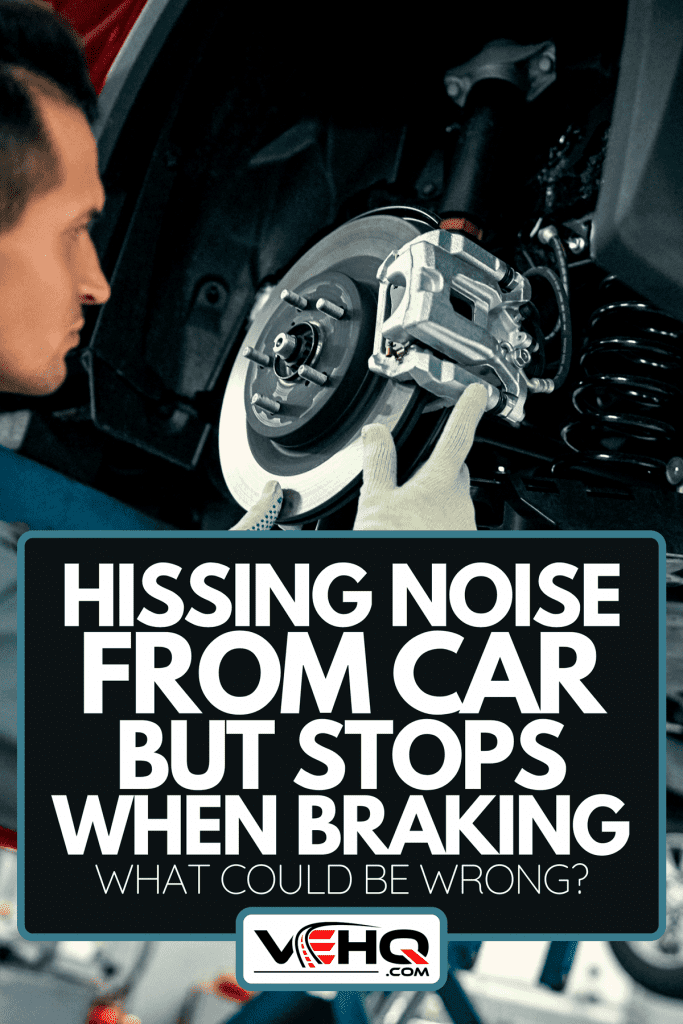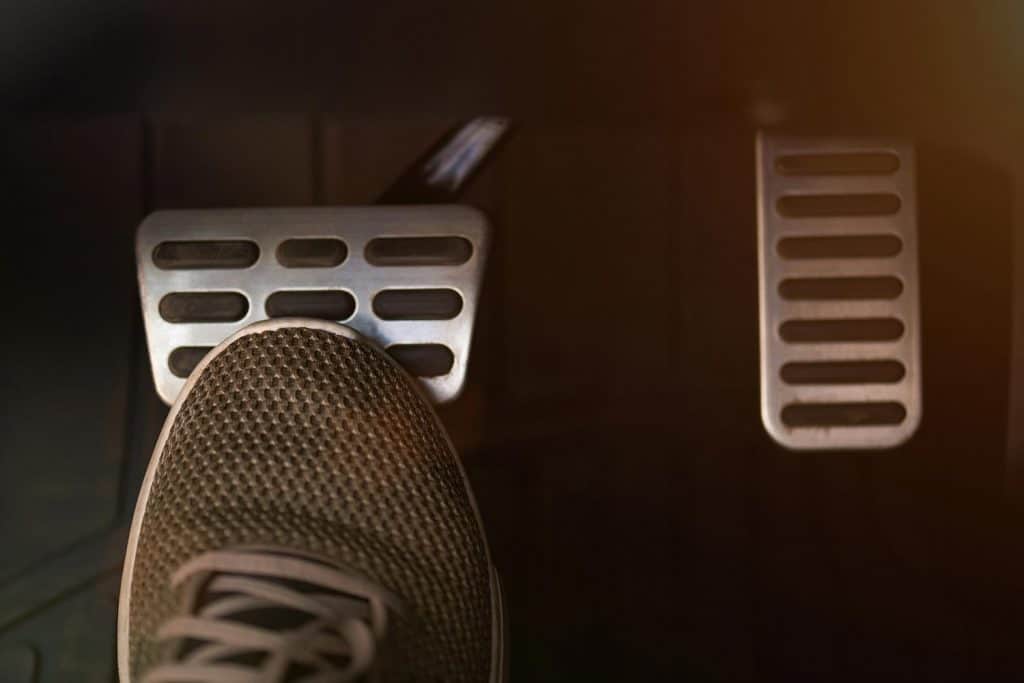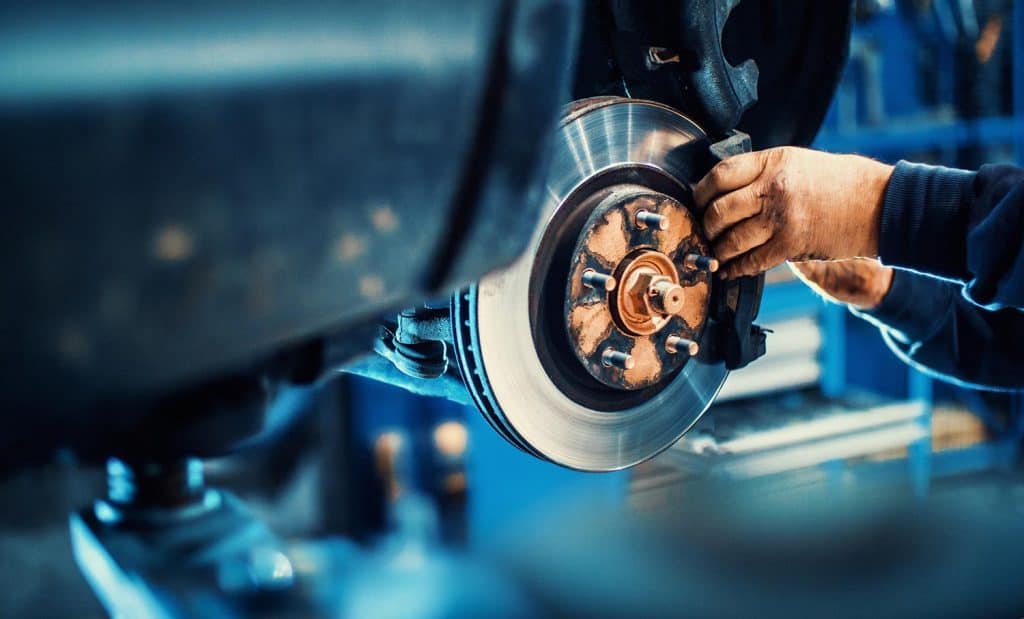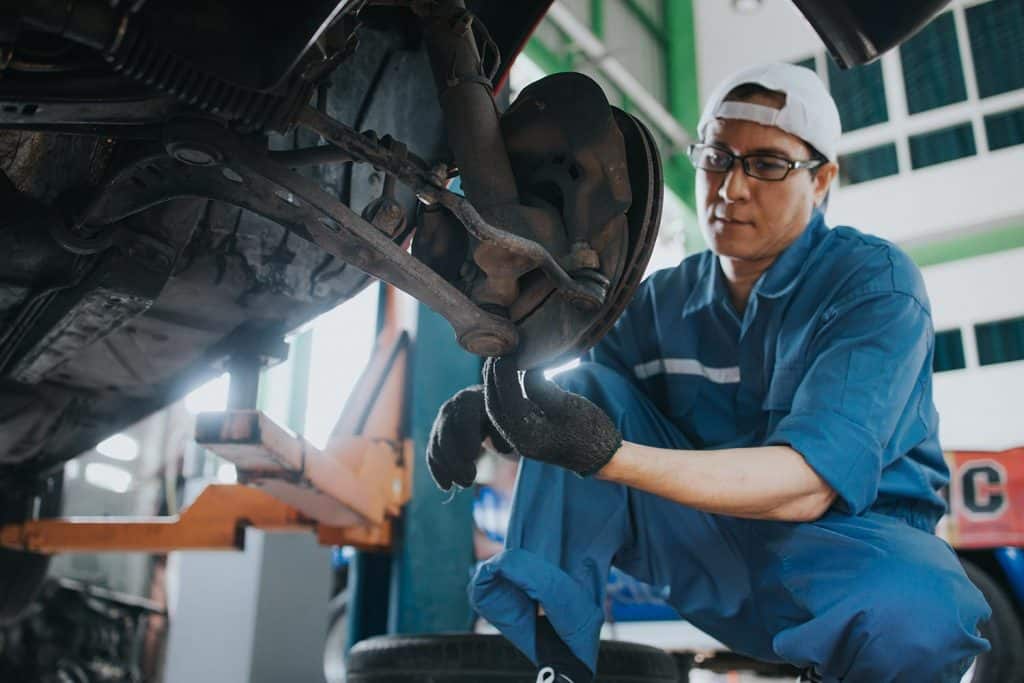The hissing noise from your car stops when you brake, a problem that can be frustrating and expensive to fix. There are several different causes of the noise, and it's essential to find the culprit of this issue. That's why we have researched for you to help diagnose this issue!
If you are having a hissing noise coming from your car, but it stops when you brake, then it could be due to the following:
- Faulty brake booster
- Leak in vacuum line
- Faulty master cylinder
- Bad booster diaphragm
- Bad brake pads
- Cracked brake booster O-ring
By knowing what could cause the sound, how loud it is, and wherein the braking process happens, you'll be able to narrow down exactly what needs attention on your car. In addition, if left untreated, these problems can lead to more severe issues with your brakes. In this article, we will take a closer look at each of these possible reasons why this is happening, so read on!

Hissing Noise From Car But Stops When Braking—What Could Be Wrong?
If you have a hissing noise coming from your car, there is something more than likely a mechanical issue. So, if you thought it could be a snake, well, that's unlikely!
More than likely, the issue is brake-related because brakes rely on pressure to do their job of slowing down or stopping your vehicle. So, if the pressure is not there, then your brakes will chatter and make noise.
Let's take a closer look at what is causing the hissing noise:

Brake Booster Leak
A faulty brake booster will often produce a hissing noise or a whistling sound. When the engine is running, a leak in the brake booster vacuum line may cause this problem. The repair of this can be simple, depending on how much air has leaked from the line.
In most cases, the rubber sections of this part are not compression fit and can be replaced relatively easily.
There should be a vacuum supply when the engine is running that allows your brakes to work correctly without producing too much force or effectiveness. A leak in the brake booster could cause air pressure to escape through the brake booster, making the hissing sound.
Brake booster leaks are pretty standard, so if you have a hissing noise coming from your car, don't be surprised if your mechanic says that's the source of the problem!
Leak in Vacuum Line
If your brake booster is working fine, then that means you have some leak or crack in any one of the vacuum lines or hoses on your vehicle.
This hissing noise from your car when braking but stopping once it has stopped could be due to leaks within vacuum lines, check valves, or fittings.
These are all prevalent issues because these parts are constantly moving and shifting, which can cause them to wear out. In addition, if there is dirt, dust, or debris in any one of these, it could also lead to the issue.
Faulty Master Cylinder
A master cylinder is a mechanical device that controls the brakes on your vehicle. It works by creating pressure that moves into brake fluid which then moves towards each of the wheels.
If you have high mileage on your car or force the brakes to work hard, then this could cause them to crack and leak, creating hissing noises when you come to a stop.
Bad Booster Diaphragm
The booster diaphragm is a part of the brake booster, and if it's damaged or faulty, then you could have a hissing noise from your car when braking but stop once it has stopped.
This part is challenging to replace as you will need to take apart parts of your braking system, which can be dangerous as you could be exposing yourself to harmful fluids.
Bad Brake Pads
This is a principal reason for a hissing noise coming from your car when braking but stopping once it has stopped because brake pads are so important!
They don't last forever and need replacing, especially if you do a lot of hard braking or driving at high speeds.
If your brake pads are worn out, then you will hear a hissing noise coming from your car when braking, but it stops once it has stopped. This is because there will not be enough pressure and friction to apply the brakes and stop the car.
Cracked Brake Booster O-Ring
If you regularly check your brake fluids (which should be done every few months), then you will know what your brake booster should look like. If you see any changes to its ovality, then it could be due to a cracked O-ring.
The O-ring is designed to seal off the fluid within the brake system, but if one becomes damaged or worn out, this can cause leakage and hissing noise when braking stops.
What causes a brake booster to hiss?
A hissing noise from a car when braking but stopping once it has stopped is often caused by the brake booster.
The vacuum lines that connect with the brake booster can become cracked or damaged over time, which causes air to leak out through the line and create a hissing sound as you apply your brakes.
In some cases, this sound will continue once you have stopped. A leak can be fixed by repairing the faulty line or replacing it if it is too damaged.
If there are no visible leaks, you may need to replace your brake booster as this component often fails over time, thanks to the constant pressure applied to it while driving.

Can I drive with hissing brakes?
You can drive with hissing brakes, but it's not the best idea. If the hissing noise is present while braking but stops once it has stopped, this could be caused by a defective brake component, so have your car inspected for safety reasons.
With that being said, it is essential to get your vehicle checked out sooner than later. It's no secret that brakes are pretty crucial in driving safely. As you have read so far, a hissing noise is typically related to a brake issue. It's not wise to gamble with faulty brakes for too long.
How do you fix a hissing brake booster?
A brake booster that hisses could have a few different causes. If you notice that your brakes seem to need more time to stop, or you hear a sound like wind whistling, it's time to get the brakes inspected by a professional mechanic.
Another area of concern is fluid leaking from the brake system; this will cause a hissing noise as the fluid is exposed to the air. Fluid leaks will require a professional brake inspection to determine where the leak is and what type of fluid - if any - needs to be replaced.
In some cases, you may have a cracked O-ring from your brake booster that could cause a vacuum leak within the brake system. This will cause a hissing noise as air is released from the brake system. Replacing or repairing this O-ring can fix this type of problem.

How do you find air leaks in brakes?
If you're trying to find the source of a brake air leak on your own, you can follow these steps to help determine where it's coming from.
Use soap and water solution
This is considered one of the best ways to find an unknown brake air leak. First, fill up any large spray bottles with a mixture of dishwashing liquid and water.
Next, find your affected brake line and spray it with the soap mixture. After that, you can watch where the bubbles are coming from to help determine where the leak is.
Check all the brake fluid lines
The next step is to check all of your brake fluid lines, including searching for any loose or broken hoses. If you're not sure which lines connect where you can take a picture of your brake system before disconnecting anything.
If you notice any broken or loose hoses, this could be the reason for your air leak, and you'll need to get those replaced as soon as possible.
Check out other brake parts
There are several different reasons why you might have a brake air leak. First, this could be because of faulty or loose components such as the master cylinder, calipers, and other brake parts.
Final Thoughts
Overall, if you are hearing a hissing noise from your car, then you should be concerned. This is because it is more than likely a brake-related issue. We hope that this article gave you a better understanding of the possible causes and ways to fix a brake system hissing noise.
In addition, if you are looking for more vehicle maintenance guides, then check these out:
How To Put Air In Tires Without A Gauge
